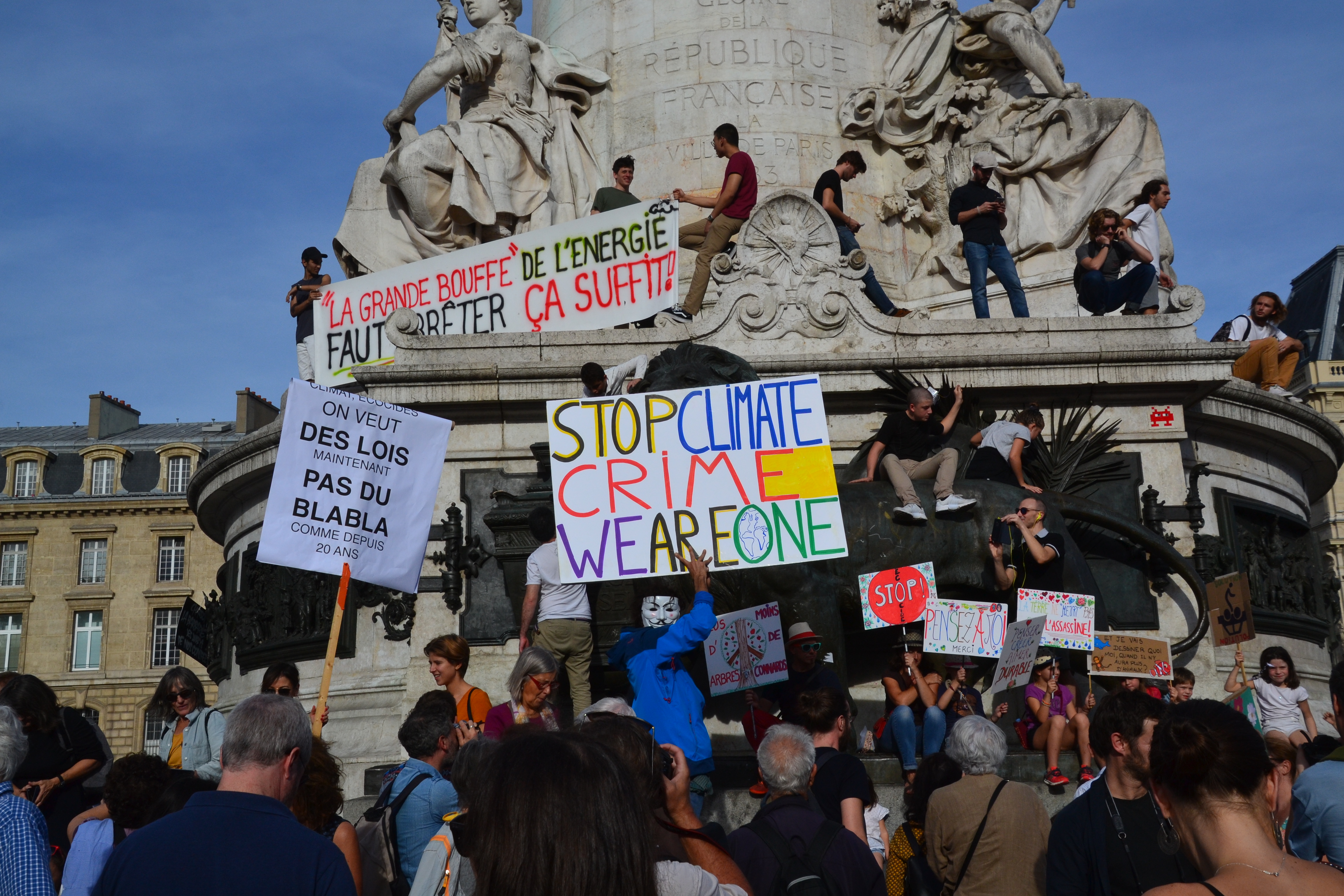Cameron Magusic, joint Catalyst culture editor
Time doesn’t mean anything when you’re about to be, you know, have water lapping at your door.”
Peter Dutton caught on a ‘hot mic’ as federal immigration minister in 2015.
“Eerily plausible,” says Guardian Australia. “Eerily ominous,” according to TV Tonight. “An urgency … that’s eerie,” writes news.com.au.
The eeriness of the show is easy to pick up on in reviews of The Commons, Stan’s extremely worthwhile addition to Australian drama for streamers.
The Commons pits different biological imperatives against each other: Mother Nature against motherhood.
Set in 2026, or roughly the mid-point between now and 2030–when the United Nations’ Intergovernmental Panel on Climate Change says we need to have reduced global carbon emissions by 45 percent–we meet the show’s protagonist and moral compass, Eadie Boulay (Downton Abbey’s Joanne Froggatt) in the series’ opening scene.
In a veritable Edenic paradise, this idyllic scene quickly turns into a literal nightmare for Boulay, who is undergoing IVF treatment. We move from an imagined to a real hell for the characters, who must contend with the constancy of Sydney day-time temperatures over 40 degrees Celsius, wind storms and acid rain – which gives Boulay’s step-daughter, Ivy (Inez Currõ), a swollen eye because she doesn’t bother using an umbrella between home and the school carpool pick-up spot down the road.
At this point, the viewer is already inclined to ponder how they will cope with a supposedly life-nourishing element literally raining down poison. The message of nature’s poetic justice at its finest is clear from the get-go.
Alongside this, there is the very human concern of Boulay wanting a child of her own with her partner, Lloyd Green (David Lyons). The viewer is led to assume the federal government has highly regulated at least IVF pregnancies (if not pregnancy in general), such is the need to control the population amid ever-dwindling resources. Boulay ropes in third wheel Shay Levine (Ryan Corr) to assist her with an ‘off-the-books’ fertilisation method, which has major ramifications for Shay later in the series.
Eadie does wrestle with the consequences of bringing a child into a near-apocalyptic world, as have women in real life–according to an Australian Conservation Foundation survey done last year, one in three women aged under 30 years old is reconsidering having children in light of our climate emergency. Eadie’s neurodiverse nephew, Cosmo (Bede Warnock), picks up on this ethical dilemma, and the scenes between him and his aunt are incredibly heartfelt.
Lloyd and Shay, meanwhile, work at the fictional National Institute of Science (NIS) to produce a vaccination against Chagas disease, which in our current timeline is found in parasites in tropical areas (see House M.D. episode “No More Mr Nice Guy” for a vivid depiction). As Lloyd explains to new NIS team members before going out on a routine anti-Chagas patrol in Sydney’s west, the hotter weather has caused the tropics (and the disease-carrying parasite) to move south.
Embedded in the series is a searing critique of the concept of ‘disaster capitalism’, which refers to how much money there is to make when all hell breaks loose and which presumably follows ‘late capitalism’.
Show writer Shelley Birse (Wolf Creek and Romper Stomper) presents the viewer with secondary characters of varying degrees of unedifying disaster-capitalist amorality, such as Boulay’s brother Dom (Rupert Penry-Jones), who is chief operating officer of a company that acts as a private first responder to paying clients, home affairs minister Carl Anderson (Felix Williamson, who does a great job portraying an even more sociopathic version of you-know-who) and pharmaceutical executive Karima (Andrea Demetriades), who does redeem herself towards the end of the series.
Big Pharma’s role in distributing a cure for the Chagas epidemic is rightly much-discussed in the series: Lloyd and Shay debate whether to trust that Karima’s company can simultaneously work for the good of its shareholders and the public at large before circumstances force their hands.
This is where Israel Latu (Dominic Ona-Ariki), one of the receptionists at the swish central-Sydney apartment building housing Dom, his wife and four (4!) kids, and Anderson, fits in. He has his own private struggle, which intersects nicely with the other storylines as season one ends.
‘The tragedy of the commons’ is an economic concept that refers to the quirk of human nature whereby a public facility like a ‘commons’ (another word for park) is uncared for because people put their own interests above the collective interest. The hope of The Commons, as Ryan Corr told news.com.au, is that people will set aside their self-interests in the face of global, collective adversity.
Overall, season one was brilliant. No word yet on when season two will be filmed, much less released, but I can think of at least one federal government minister who should watch the show ASAP.


